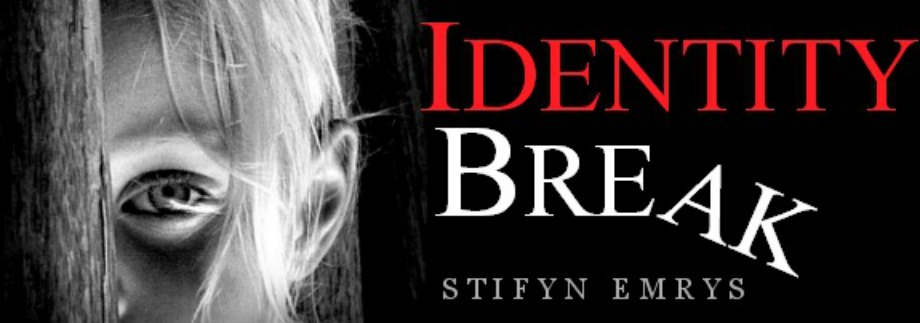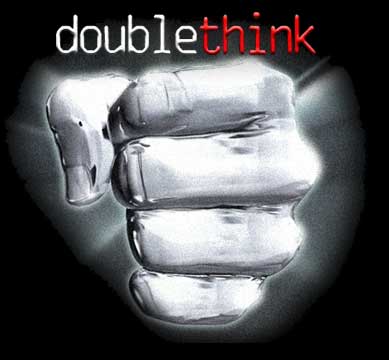When does a good thing become too much of a good thing?
That's the question a lot of people in the publishing business are asking themselves right about now.
The publishing world has undergone a tectonic shift in the past decade, one that has left authors trying to stay ahead of a tsunami that just keeps coming: a tsunami of books. The print-on-demand revolution gave virtually anyone with a keyboard and some extra time the opportunity to become an author. Never mind that a large number of these "anyones" didn't know how to develop a plot, create compelling characters or even write a cohesive sentence.
Now, there are so many books hitting the market that no one has time to sift through them effectively, and little-known authors' works are lost in what my wife refers to as a cacophony of "white noise." To put it another way, it's virtually impossible to stand out from the crowd when the crowd is so immense it reaches farther than the eye can see.
Before all this happened, the tsunami was a bit smaller, and it never reached the reader. Standing in its way was a barrier as formidable as the Wall in George R.R. Martin's
A Song of Ice and Fire - the bulwark of traditional publishing. The process was so effective at keeping bad books out of print that it became almost a running joke: Of course, you were going to get dozens or even hundreds of rejection slips before you got a publishing deal (if you ever did). That's just how the system worked - and still does.
John, Paul, George and Ringo
A brief but pertinent digression: Back in 1963, a young band no one had ever heard of auditioned for a recording contract with Decca Records, which took a pass in favor of an act called Brian Poole and the Tremeloes. It went down as perhaps the biggest mistake in recording history: although the Tremeloes charted with a handful of hits in the '60s, the band that didn't get the gig was none other than the Beatles.
The thing is, this happens all the time in traditional publishing. J.K. Rowling received something like a dozen rejection slips for her first
Harry Potter book. Stephen King got 60 of them. William Saroyan reportedly collected thousands (yes, thousands). There are stories of authors who wallpapered their bedrooms with these suckers - not second-rate wannabes, but talented authors who ended up on bestseller lists. Stephen King is like the Beatles of the publishing world. Now, imagine if the Beatles hadn't been rejected once, but
60 times. Excuse me, but isn't there something wrong with this picture?
Clearly, a system that overlooks that kind of talent on a routine basis needs some fine-tuning. Part of the problem is the sheer volume of work that was submitted to traditional publishers - the tsunami. Acquisitions editors didn't have time to read it all, so they developed a system to weed out a large volume of manuscripts before they even opened the envelopes. Many refused to consider submissions from writers who didn't have agents and from authors who hadn't been published previously.
The tsunami got a little smaller because some writers got discouraged and stopped sending in manuscripts after receiving a certain number of rejections. Who knows how many potential Kings and Rowlings were among those who just gave up? A few - who could afford it - went an alternate route and published their works via the so-called "vanity" press, but without any promotion or distribution backing, these books never stood a chance at any kind of mainstream acceptance.
Personal Choices
I discovered writing in high school and soon decided I wanted to be a novelist. During my spare time, I worked on a fantasy novel I called "There Shall Arise an Eagle," which I imagined would be a little bit Tolkien and a little big George MacDonald with, of course, my own personal touches.
It was something like 600 pages, had an interesting premise ... and, in retrospect, wasn't very good. I sent it off to one publisher, got a rejection notice, and never tried again. The truth is, I was worried. I'd heard all the horror stories about publishers tossing manuscripts from the inbox to the trash can sight unseen, and I didn't particularly want to bet my future on that. I knew I could write, but I wanted a steady paycheck, so I went to college, graduated and became a journalist. I figured I could pursue a career I could count on and write fiction in my spare time.
Somehow, though, it didn't work out as planned. After roughly a quarter-century as a reporter, columnist and editor - and 15 years at my most recent stop - I got laid off. I had a job as a substitute teacher, but it wasn't enough to make ends meet. During the course of all this, I met the woman who would become my wife, and whose dream was, coincidentally, to become a novelist.
This coincided with the print-on-demand revolution and gave me what I thought was a brilliant idea: I'd start doing what I'd set out to do in the first place - write books. Only this time, I could send them directly to print, bypassing the traditional publishing "machine." Between the summer of 2012 and the spring of 2013, I churned out seven books (an eighth is near completion), and found an audience for my work - though not a huge one. Seeing my books in print was, to say the least, a dream come true, and independent publishing made it happen.
(As a side note, I was fortunate enough to find another job in journalism, but don't look for the Stifyn Emrys byline anywhere - this is a pen name I adopted, in large measure, to keep my two careers separate.)
The Downside
I'll always be thrilled with the fact that the tectonic shift in the industry that is print-on-demand enabled me to get my ideas into print without navigating the arcane obstacle course that traditional publishing had set before me.
But that shift also set in motion a series of troubling changes - changes that didn't occur only in publishing, but that were mirrored by similar events taking place across a vast spectrum of communications media.
Books, once funneled through a limited number of publishers, were now provided by a nearly limitless number of independent authors. Radio and television "channels," formerly confined to perhaps a few dozen frequencies on AM, FM, VHF and UHF (remember those?), proliferated to hundreds and even thousands of choices via cable and satellite. When it came to delivering the news, the Heralds and Gazettes of the world found themselves in a battle royal with online providers such as The Huffington Post, Yahoo and Google news.
Virtually everywhere you look, the old feudal barons are being supplanted by what appears to be a new direct democracy in which media outlets appeal directly to the people, and the middlemen - the gatekeepers - be damned.
But appearances can be deceiving.
The Communications Reformation
For one thing, the old gatekeepers are still there. The old television networks and media empires haven't disappeared at all. They're still there, and they're still powerful. They've just had to adjust to a world in which they aren't the only game in town.
In a sense, the world today is in the midst of a communications reformation not unlike what occurred when the Protestant Reformation changed the cultural face of Europe four centuries ago. The Catholic Church's monopoly on power was shattered, but it didn't disappear. Instead, it launched a counter-reformation and adjusted to the new world order in a largely successful quest to remain a potent political and monetary force. Worldwide, the Catholic Church still counts something like 1 million members, more than twice as many as all Protestant groups combined.
The Catholics were the old gatekeepers, the priests who stood between humankind and the Christian god. The Protestants, on the other hand, offered direct access to the divine via Martin Luther's "priesthood of all believers."
In the same way, the traditional media empires continue to be a potent force, but they're challenged by a vast array of self-appointed "alternative" gatekeepers who have taken advantage of the recent media explosion. Where Walter Cronkite and David Brinkley reigned unchallenged on the airwaves, their successors must compete with the likes of Rush Limbaugh, Glenn Beck, Bill Maher, Stephen Colbert, Jon Stewart, Sean Hannity, Ann Coulter and a host of others. Each represents, to his or her particular audience, a sort of populist voice against the establishment (though most actually work for "the establishment," in one form or another).
The Battle for Books
The exact same sort of scenario is unfolding in the publishing world: an old-line establishment is intent on retaining its power against a new and insurgent "direct access" approach.
On the one side is traditional publishing, which is quickly consolidating into fewer and fewer meaningful players. The so-called "Big Six" publishers is becoming five with the merger of Penguin and Random House.
On the other side is Amazon, the gatekeeper for the indie authors, along with (to a lesser degree) Barnes & Noble and a few others. There's consolidation going on here, too. Rumors had Barnes & Noble selling its Nook division to Microsoft - which has since said it's not interested. Regardless, however, the behemoth Amazon is positioning itself as the 800-pound gorilla on this side of the fence, especially with its recent acquisition of reader fan site Goodreads.
At the dawn of the Renaissance, the Catholic Church stayed relevant in part by launching a counter-reformation. It has, over the years, retrenched and rethought its approach to religion (even going so far as to virtually abandon the traditional Latin Mass). More recently, the old-line media empires have kept some of their status by expanding into online, cable and other venues to challenge the insurgents on their own turf. In both cases, the establishment learned something from the upstarts and adapted, largely by adopting some of their challengers' strategies.
What remains to be seen is whether this will happen in the publishing world and, if so, what it will look like.
Looking to the Future
The Big Six (or Big Five) haven't done much so far, to my knowledge, in the way of adapting to the emerging new order. They continue to rely on their big-name stable of authors and their ability to offer big contracts to authors they think can move large numbers of copies. In a way, their jobs are easier now. The print-on-demand industry has begun to serve as a sort of minor-league farm system, churning out "prospects" who have already shown they can sell books.
But in another way, their jobs are a whole lot harder. The sheer volume of works being produced by independent authors threatens to saturate the market so much that everyone's piece of the pie will shrink dramatically. When supply exceeds demand - if it hasn't already - the Stephen Kings, J.K. Rowlings and George R.R. Martins won't suffer - but if you aren't a household name with a large following, you might find it a lot harder to make a living, whether you're traditionally published or not.
If the traditional publishing houses don't watch out, they may find their deep pockets growing increasingly shallower, and pretty soon they may no longer be able to offer the kind of incentives needed to lure an already successful indie author into their fold. If they don't think they're susceptible to this kind of money crunch, all they have to do is ask the newspaper industry, which has faced heavy contraction as a result of declining ad sales and profits. Large numbers of employees have been laid off, and more still have abandoned the industry for more secure or better-paying careers.
Indeed, the Penguin-Random House merger may be an attempt to combine resources in an attempt to better continue the fight against Amazon and its hordes.
When the Dust Settles
What has to be troubling, from the traditional publishers' perspective, is that they haven't done much to adapt to the changing landscape. If they don't, they face a far more formidable foe than the Catholic Church did in Luther, Calvin, Zwingli and Henry VIII. Amazon is probably already more powerful than the traditional publishers; it's better funded and certainly more diversified.
If Amazon succeeds in fully vanquishing the old order, expect it to use the resulting virtual monopoly to enrich itself by taking a bigger cut of authors' profits, increasing fees and setting stricter pricing standards. This certainly wouldn't be good for authors and could end up becoming the next thing to a vanity press, making it economically prohibitive for many authors to write for a living. Under such a scenario, pure economics could dictate what works reach the public.
Another possibility is that the traditional publishing houses will, in some way, adapt to the changing landscape. It remains to be seen how they would do this, but they might pursue (for example) using their remaining financial clout to strike some sort of preferred distribution deal with Amazon.
In the meantime, many indie authors are likely to find it harder and harder to get noticed among the growing, discordant din of choices. Readers inundated by book ads, reviews and blogs are likely to, increasingly, tune out the "white noise" and stick with authors they already know. Even offers of free books require an investment of time, and if the reader is confronted with a series of wannabe authors who can't write their way out of a wet paper sack, they're unlikely to bother after a while. All this could end up thinning the ranks of writers in the same way rejections slips once did, and we'll be left with a mix of established, self-funded and stubborn authors - pretty much what we had before.
Agents of change?
The people with the greatest opportunity in the midst of all this might be the ones you'd least expect: the agents. Until now, they've had a virtual guarantee of work, courtesy of publishing houses that refuse to accept work from unagented authors. If the publishing houses decline in influence, this guarantee will disappear. But that doesn't mean agents are out of luck. On the contrary. Traditional publishers are already putting less money into promotions and marketing, leaving those tasks increasingly to the authors themselves. Beyond monetary advances and placement in the dwindling number of brick-and-mortar stores (Barnes & Noble and ...), they have increasingly little to offer.
This is where the agent has an opportunity to come in and do what the traditional publishers themselves have, so far, failed to do: adapt. Their role as a middleman between author and publisher will diminish, but they will have an opportunity to expand into roles such as publicist and marketing director. Authors need time to ... well ... write. And they'll find people to help them do what the traditional publishers are, increasingly, not doing: legwork and promotions.
I can tell you from personal experience as an independent author that I'm spending more time publicizing my work at this point than I am actually writing - and with the increasing competition from other indie authors who are discovering print-on-demand, I doubt it's going to get any easier. I'm not a bad salesman, but it's not what I was born to do. I was born, I think, to write - and I suspect most other authors feel that way.
That's why so many of us are, I'm sure, eager to see how this all shakes out. I can't tell you how it ends, but as of now, it sure is a helluva show.












__span.jpg)





























